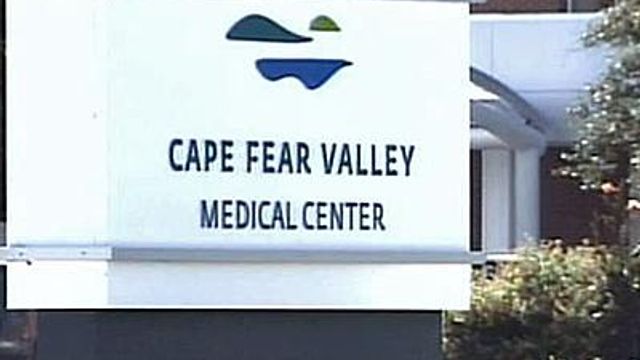Harsh economy crowds ERs with uninsured
"There's an ever-increasing burden on us to take care of everyone that comes in the door," said Dr. John Reed, director of emergency room at Cape Fear Valley Medical Center. His ER is the 70th busiest ER in the country, with about 400 patients daily.
Posted — Updated"There's an ever-increasing burden on us to take care of everyone who comes in the door," said Dr. John Reed, director of the emergency room that ranks as the 70th-busiest ER in the country. The rankings are based on visits in 2007.
Nearly 83 percent of ER doctors responding to a national poll by the American College of Emergency Physicians said they are seeing more unemployed patients who have lost their health benefits. Eighty-eight percent of doctors said they had patients who had been turned away from other medical facilities because they couldn't pay.
"When you're sick and you ain't got no health insurance, you're laid off – the only place you can go is the ER," said patient Jarrell Lester, who recently lost his job and insurance. His friends brought him to Cape Fear's ER because he felt sick and had nowhere else to go.
About 400 patients come to the Cape Fear ER daily, and about a quarter can't foot their bills, Reed said. The budget strain has put some ERs nationwide at a greater risk of closing, he said, adding that he doesn't see Cape Fear closing its ER.
"We don't have enough nurses. We need more people on call," Reed said. "We have to run 24 hours and be prepared for anything. That costs a lot of money."
Quality of care has also been strained as ER doctors treat patients whose illnesses aren't real emergencies, Reed said. About 40 percent of patients at the Cape Fear ER have minor problems that should should have been handled elsewhere, he said.
In the national survey, nearly 73 percent of emergency physicians said they had seen delays in care cause serious medical problems for patients.
Marcia McLucas has one functioning kidney. She said she had been waiting in the Cape Fear ER for five hours Thursday.
"That's dangerous to my health," McLucas said. "The doctors are OK here; it's just the wait."
While annual projected visits for ExpressCare are lower than those for the ER, Reed said, they do help manage the burden.
Between October and January, 119,496 patients entered the Cape Fear ER, and 23,753 visited ExpressCare. But ExpressCare's growth rate from the same period a year earlier is nearly double that of the ER – 14.5 percent more people sought care at ExpressCare, contrasted with 7.5 percent more at the ER.
Still, harsh economic conditions often fill ExpressCare facilities to capacity, Reed said.
"Access to emergency care is a real problem," he said.
• Credits
Copyright 2024 by Capitol Broadcasting Company. All rights reserved. This material may not be published, broadcast, rewritten or redistributed.





